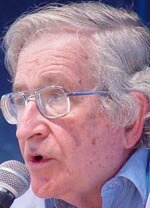In the Israeli discourse, Israel has always been the innocent victim of vicious aggression from its neighbors. This perception of reality has only intensified with its two recent wars – against the Palestinians in Gaza and against Lebanon. On this view, in both cases Israel has manifested its good will – it ended the occupation of the Gaza strip in 2005, just as it ended the occupation of southern Lebanon in 2000. But, on this perception, the other side reciprocated with unprovoked rockets attacks on Israel.
Israel-Palestine
Beirut is burning, hundreds of Lebanese die, hundreds of thousands lose all they ever owned and become refugees, and all the world is doing is rescuing the “foreign passport” residents of what was just two weeks ago “the Paris of the Middle East”. Lebanon must die now, because “Israel has the right to defend itself”, so goes the U.S. mantra, used to block any international attempt to impose a cease fire.
Whatever may be the fate of the captive soldier Gilad Shalit, the Israeli army’s war in Gaza is not about him. As senior security analyst Alex Fishman widely reported, the army was preparing for an attack months earlier and was constantly pushing for it, with the goal of destroying the Hamas infrastructure and its government. The army initiated an escalation on 8 June when it assassinated Abu Samhadana, a senior appointee of the Hamas government, and intensified its shelling of civilians in the Gaza Strip.
May 11, Sabra-Shatila camp
There is a plot of land of perhaps less than a half acre, surrounded by a wall with a large iron gate, where the victims of the 1982 massacre are buried. The land is mostly flat and covered by grass, with a few mounds here and there, the locations of mass graves which we can see through the gate’s vertical bars. On the outside wall there are large, slightly fading, poster photos of those found dead after the rampage of Phalangist militiamen that were sent in by the Israeli army that had surrounded the camp in 1982. The gate-keeper is an old Palestinian, with half of his teeth missing, sitting under the shade of the tree near the gate and selling flowers. We ask him to open the gate and let us enter the ground. The old man says that if the visitors are American he will not let them enter. “Yes, the visitors are American, but they are good Americans,” I explain. Then pointing to Noam a few steps away, I say that he, in particular, is the most indefatigable defender of Palestinian rights in America. The old man stares at me with a skeptical look for a few seconds, as if to gauge the truth of what I just said, then gets up and opens the gate.























